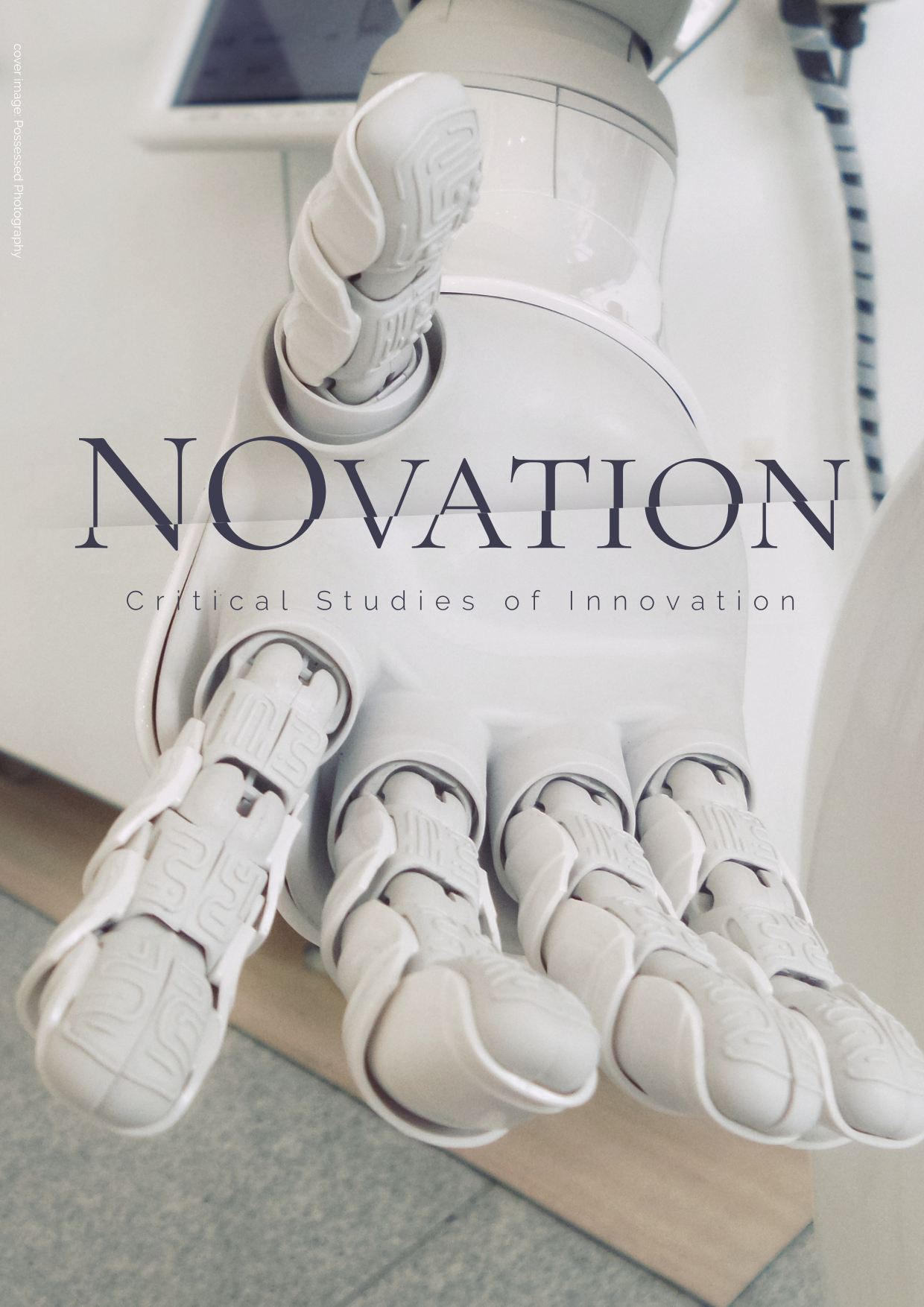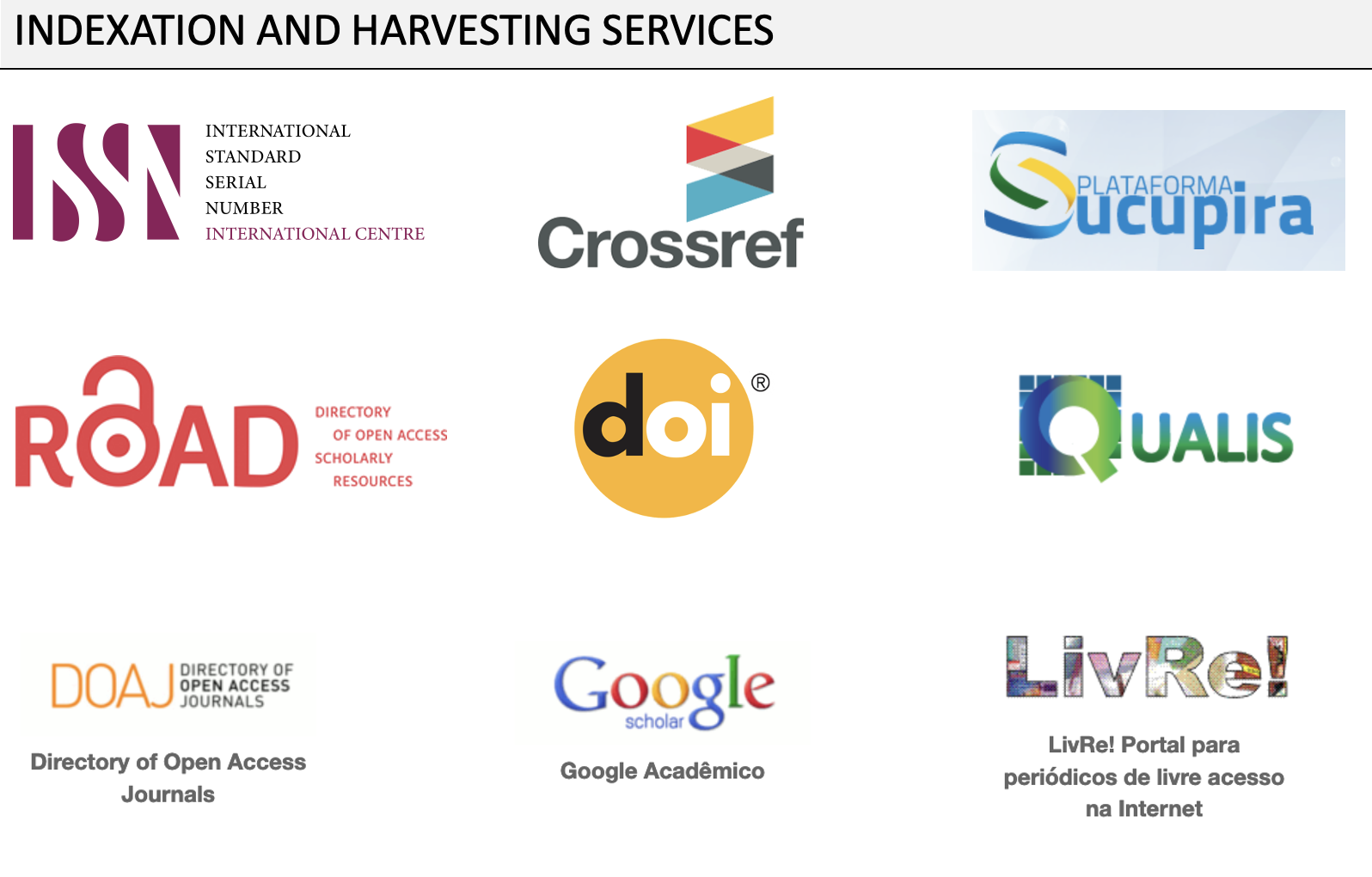Transformative Translations? Challenges and tensions in territorial innovation governance
DOI:
https://doi.org/10.5380/nocsi.v0i5.93603Keywords:
Innovation Governance, Responsible Research and Innovation (RRI), Translation, MaintenanceAbstract
Since the 1990s, changing ways of producing and circulating knowledge have been accompanied by debates that diagnose and call for change in the relationship between science, society, politics, and innovation. Most recently in Europe, some of these debates emphasize the concept of responsible research and innovation (RRI). In this paper, we present a comparative analysis of different territorial RRI-pilots within the Horizon 2020-funded project TRANSFORM. In these pilots, different translations of RRI become visible. RRI (1) gets translated as participatory and deliberative modes of innovation governance aimed at transformative change, (2) takes the shape of citizen science projects; and (3) is enacted as participatory agenda setting and (plans for a) citizen assembly. We argue that it is the often-invisible work of establishing, nurturing, and caring for relationships within the territorial R&I ecosystems – what can the thought of as ongoing “maintenance work” – that creates the conditions for more responsive modes of innovation governance, and thus a shift towards transformative change in innovation policy. Through describing these translations and the related practices we will direct attention to the potential, challenges, and systemic barriers of this kind of work.
References
Arora, S., Van Dyck, B., Sharma, D., & Stirling, A. (2020). Control, care, and conviviality in the politics of technology for sustainability. Sustainability: Science, Practice, and Policy, 16(1), 247-262. https://doi.org/10.1080/15487733.2020.1816687
Barben, D., Fisher, E., Selin, C., & Guston, D. H. (2007). Anticipatory Governance of Nanotechnlogy: Foresight, Engagement, and Integration. In E. J. Hackett, O. Amsterdamska, M. Lynch & J. Wajcman (Eds.), The Handbook of Science and Technology Studies (3rd Ed., p. 979-1000). MIT Press.
Barry, A. (2013). The Translation Zone: Between Actor-Network Theory and International Relations. Millennium: Journal of International Studies, 41(3), 413-429. https://doi.org/10.1177/0305829813481007
Bush, V. (1945). Science: the endless frontier. NSF’s 75th anniversary edition. Washington: National Science Foundation, EUA.
Charmaz, K. (2006). Constructing Grounded Theory. A Practical Guide Through Qualitative Analysis. Sage.
Diercks, G., Larsen, H., & Steward, F. (2019). Transformative innovation policy: Addressing variety in an emerging policy paradigm. Research Policy, 48(4), 880-894. https://doi.org/10.1016/J.RESPOL.2018.10.028
Etzkowitz, H., & Leydesdorff, L. (1998). The Endless Transition: A “Triple Helix” of University - Industry - Government Relations. Minerva, 36, 203-208.
Felt, U. (2017). “Response-able practices” or “new bureaucracies of virtue”: The challenges of making RRI Work in academic environments. In Responsible Innovation 3: A European Agenda? (p. 49-68). Springer. https://doi.org/10.1007/978-3-319-64834-7_4
Fitjar, R. D., Benneworth, P., & Asheim, B. T. (2019). Towards regional responsible research and innovation? Integrating RRI and RIS3 in European innovation policy. Science and Public Policy, 46(5), 772-783. https://doi.org/10.1093/scipol/scz029
Fochler, M., & De Rijcke, S. (2017). Implicated in the Indicator Game? An Experimental Debate. Engaging Science, Technology, and Society, 3, 21-40. https://doi.org/10.17351/ests2017.108
Frahm, N., Doezema, T., & Pfotenhauer, S. (2021). Fixing Technology with Society: The Coproduction of Democratic Deficits and Responsible Innovation at the OECD and the European Commission. Science, Technology, & Human Values, 47(1), 147-216. https://doi.org/10.1177/0162243921999100
Funtowicz, S., & Ravetz, J. (1993). Science for the Post-Normal Age. Futures, 25(7), 739-757.
Godin, B. (2006). The Linear Model of Innovation: The Historical Construction of an Analytical Framework. Science, Technology, & Human Values, 31(6), 639-667. https://doi.org/10.1177/0162243906291865
Groves, C. (2013). Horizons of care: from future imaginaries to responsible research and innovation. In K. Konrad, C. Coenen, A. Dijkstra, C. Milburn, & H. Van Lente (Eds.), Shaping Emerging Technologies: Governance, Innovation, Discourse (p. 185-202). IOS Press / AKA.
Guimarães Pereira, Â. (2015). Science, Philosophy and Sustainability. In Science, Philosophy and Sustainability. Routledge. https://doi.org/10.4324/9781315757902
Guston, D. (2013). Understanding “Anticipatory Governance”. Social Studies of Science, 44(2), 218-242. https://doi.org/10.1177/0306312713508669
Guston, D. H., & Sarewitz, D. (2002). Real-time Technology Assessment. Technology in Society, 24(1-2), 93-109. https://doi.org/10.1016/S0160-791X(01)00047-1
Jasanoff, S. (2003). Technologies of Humility: Citizen Participation in Governing Science. Minerva, 41(3), 223-244. https://doi.org/10.1023/A:1025557512320
Kjølberg, K. L., & Strand, R. (2011). Conversations About Responsible Nanoresearch. NanoEthics, 5(1), 99-113. https://doi.org/10.1007/s11569-011-0114-2
Konopásek, Z., Soneryd, L., & Svačina, K. (2018). Lost in translation: Czech dialogues by swedish design. Science and Technology Studies, 31(3), 5-23. https://doi.org/10.23987/sts.65543
Kovacic, Z., Strand, R., & Völker, T. (2020). The Circular Economy in Europe. Routledge.
Krabbenborg, L., & Mulder, H. A. J. (2015). Upstream Public Engagement in Nanotechnology. Science Communication, 37(4), 452-484. https://doi.org/10.1177/1075547015588601
Ludwig, D., & Macnaghten, P. (2019). Traditional ecological knowledge in innovation governance: a framework for responsible and just innovation, 7(1), 26-44. https://doi.org/10.1080/23299460.2019.1676686
Marres, N., & de Rijcke, S. (2020). From indicators to indicating interdisciplinarity: A participatory mapping methodology for research communities in-the-making. Quantitative Science Studies, 1(3), 1041-1055. https://doi.org/10.1162/qss_a_00062
Nordmann, A. (2014). Responsible innovation, the art and craft of anticipation. Journal of Responsible Innovation, 1(1), 87-98. https://doi.org/10.1080/23299460.2014.882064
Owen, R., Macnaghten, P., & Stilgoe, J. (2012). Responsible Research and Innovation: From Science in Society to Science for Society, with Society. Science and Public Policy, 39(6), 751-760. https://doi.org/10.1093/scipol/scs093
Pfotenhauer, S., & Jasanoff, S. (2017). Panacea or diagnosis? Imaginaries of innovation and the “MIT model” in three political cultures. Social Studies of Science, 47(6), 783-810. https://doi.org/10.1177/0306312717706110
Pfotenhauer, S., Juhl, J., & Aarden, E. (2019). Challenging the “deficit model” of innovation: Framing policy issues under the innovation imperative. Research Policy, 48(4), 895-904.
Puig de la Bellacasa, M. (2011). Matters of Care in Technoscience: Assembling Neglected Things. Social Studies of Science, 41(1), 85-106.
Rip, A., & Kulve, H. (2008). Constructive Technology Assessment and Socio-technical Scenarios. The Yearbook of Nanotechnology in Society, Volume I: Presenting Futures, 49-70.
Rip, Arie. (2016). The clothes of the emperor. An essay on RRI in and around Brussels. Journal of Responsible Innovation, 3(3), 290-304. https://doi.org/10.1080/23299460.2016.1255701
Russell, A. L., & Vinsel, L. (2018). After innovation, turn to maintenance. Technology and Culture, 59(1), 1-25. https://doi.org/10.1353/tech.2018.0004
Schot, J., & Rip, A. (1997). The Past and Future of Constructive Technology Assessment. Technological Forecasting and Social Change, 54, 251-268. https://doi.org/10.1016/S0040-1625(96)00180-1
Schot, J., & Steinmueller, W. E. (2016). Framing Innovation Policy for Transformative Change: Innovation Policy 3.0. Science Policy Research Unit, 2, 0-26.
Schot, J., & Steinmueller, W. E. (2018). Three frames for innovation policy: R&D, systems of innovation and transformative change. Research Policy, 47(9), 1554-1567. https://doi.org/10.1016/J.RESPOL.2018.08.011
Soneryd, L., & Amelung, N. (2016). Translating Participation: Scenario Workshops and Citizens’ Juries across Situations and Contexts. In J.-P. Voß & R. Freeman (Eds.), Knowing Governance. The Epistemic Construction of Political Order (p. 155-74). Palgrave Macmillan UK. https://doi.org/10.1057/9781137514509_7
Srivastava, A., Thomson, S. B., Barnett-Page, E., Thomas, J., Carroll, C., Booth, A., Cooper, K., Dixon-Woods, M., Framework, S. B., Tyler, K. C., David, V., Smith, J., & Firth, J. (2009). Framework Analysis: A qualitative methodology for applied policy research. BMC Medical Research Methodology, 4(2), 72-79.
Stilgoe, J., Owen, R., & Macnaghten, P. (2013). Developing a framework for responsible innovation. Research Policy, 42(9), 1568-1580. https://doi.org/10.1016/j.respol.2013.05.008
Strand, R., & Funtowicz, S. (2016). Democracy, Ethics and the Governance of Emerging Science and Technology. In A. Delgado (Ed.), Technoscience and Citizenship: Ethics and Governance in the Digital Society (The Intern, pp. 3-15). Springer Science and Business Media B.V. https://doi.org/10.1007/978-3-319-32414-2_1
Strand, R., Saltelli, A., Giampietro, M., Rommetveit, K., & Funtowicz, S. (2016). New narratives for innovation. Journal of Cleaner Production, 197(2), 1849-1853. https://doi.org/http://dx.doi.org/10.1016/j.jclepro.2016.10.194
Strand, R., Spaapen, J., Bauer, M., Hogan, E., Revuelta, G., & Stagl, S. (2015). Indicators for promoting and monitoring responsible research and innovation: report from the expert group on policy indicators for responsible research and innovation (Issue EUR 26866 EN).
Strasser, B. J., Baudry, J., Mahr, D., Sanchez, G., & Tancoigne, E. (2019). “Citizen science”? Rethinking science and public participation. Science and Technology Studies, 32(2), 52-76. https://doi.org/10.23987/sts.60425
Vinsel, L., & Russell, A. L. (2020). The innovation delusion: how our obsession with the new has disrupted the work that matters most. Random House.
Völker, T., Mazzonetto, M., Slaattelid, R. T., & Strand, R. (2023). Translating tools and indicators in territorial RRI. Frontiers in Research Metrics and Analytics, 7(94). https://doi.org/10.3389/FRMA.2022.1038970
von Schomberg, R. (2012). Prospects for technology assessment in a framework of responsible research and innovation. In Technikfolgen abschätzen lehren: Bildungspotenziale transdisziplinärer Methoden (pp. 39-61). VS Verlag für Sozialwissenschaften. https://doi.org/10.1007/978-3-531-93468-6_2
Downloads
Published
How to Cite
Issue
Section
License
Copyright (c) 2023 Thomas Völker, Rasmus Slaattelid, Roger Strand

This work is licensed under a Creative Commons Attribution-NonCommercial-ShareAlike 4.0 International License.
NOvation is an open-access journal under a Creative Commons – CC Attribution-NonCommercial-ShareAlike 4.0 license, which allows others to share the work with an acknowledgement (and preservation) of the author's authorship and intellectual property rights.
To this extent, the authors who publish in this journal agree with the following terms:
1. Authors retain the rights and grant the journal the right of first publication, with the work published under the Creative Commons – CC Attribution-NonCommercial-ShareAlike 4.0 that allows [...].
2. Authors have authorization for distribution, of the version of the work published in this journal, in an institutional repository, thematic, databases and in other works as a book chapter, with acknowledgement of authorship and initial publication in the journal;
3. Papers published in this journal will be indexed in databases, repositories, portals, directories and other sources in which the journal is and will be indexed.
Ethical Responsibilities of Authors
This journal is committed to upholding the integrity of the scientific record.
Consent to submit has been received explicitly from all co-authors, as well as from the responsible authorities – tacitly or explicitly – at the institute/organization where the work has been carried out, before the work is submitted.





